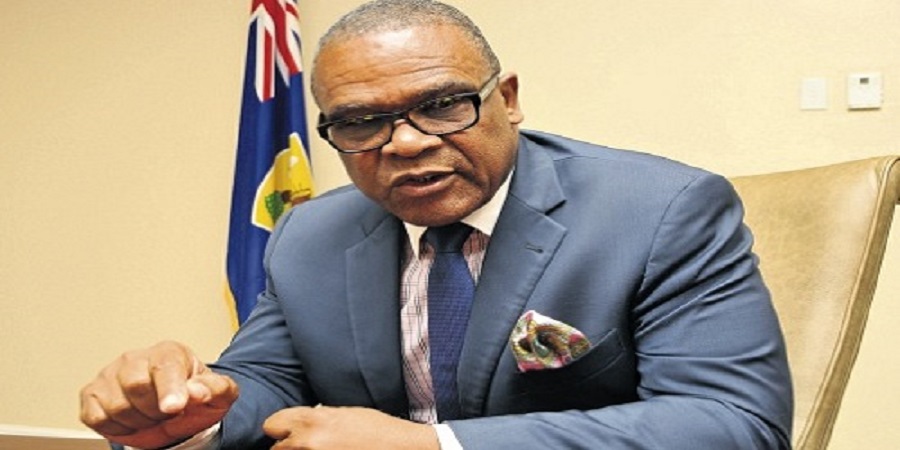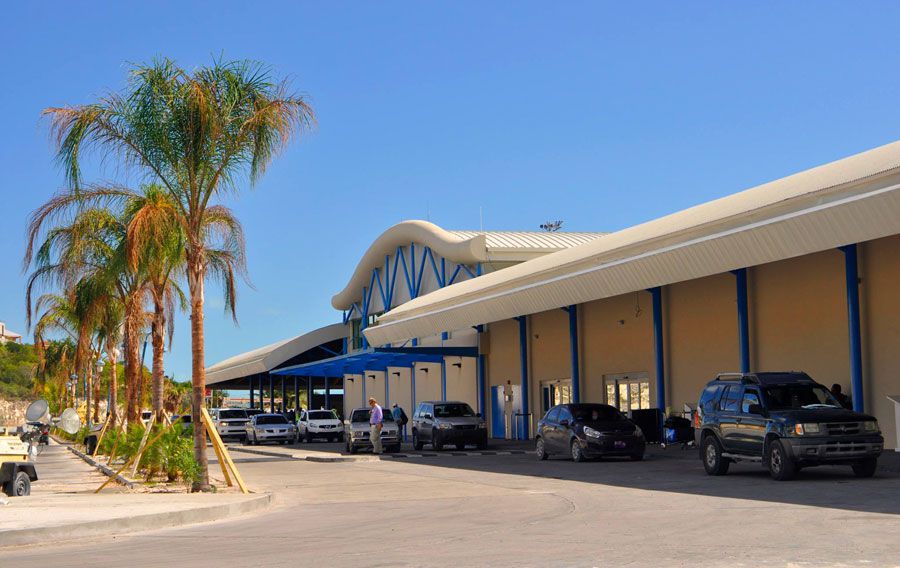#Providenciales, July 25, 2018 – Turks and Caicos –
OFFICE OF THE LEADER OF THE OPPOSITION
N.J.S. Francis Building
Pond Street, Grand Turk, Turks and Caicos Islands
Telephone: (649) 338-3706, Email: cwmisick@gov.tc
Providenciales Turks and Caicos Islands – July 24, 2018
Press Statement from the Office of the Leader of the Opposition
Service Charge and Boomerang Politics.
The following opinion by the Leader of the Opposition appeared in Volume 31 No. 26 page 10 of Turks & Caicos Weekly News – see link
https://issuu.com/tcweeklynews/docs/july_1-7__2017_-_all_pages.
Service Charge Debate – Deceit or naivety
The confusion around the equitable distribution of what has become known as ‘service charge’ is caused by a combination of the inexcusable deceit and naivety by some politicians who have misled hospitality workers and the public for their own ends. On this issue, the Premier prevarication is most offensive to a block of voters who she unequivocally pledged to ensure that 100% of the service charge is given. Since it is now clear that she has wised up to the fact that that promise was impractical, and not one that she can deliver – the poetry of campaign must now give way to the prose of governing. That requires a clear policy decision anchored in legislation.
 The truth is that today’s ‘service charge’ defined in the Ordinance as ‘Any amount of money charged over and above the price of accommodation in a hotel, or the selling price of a meal or intoxicating liquor or beverage purchased by a customer, for service to a guest or customer, in a hotel or restaurant, but does not include any tax to be paid under any ordinance’ is an amalgamation of two add-ons to the published rates for the provision of hospitality services provided by some establishments prior to January 2004. In any case there were no obligations by establishments to collect or pay neither gratuity nor service charge to employees; and in fact, all-inclusive properties did not collect nor pay gratuity to employees before 2004.
The truth is that today’s ‘service charge’ defined in the Ordinance as ‘Any amount of money charged over and above the price of accommodation in a hotel, or the selling price of a meal or intoxicating liquor or beverage purchased by a customer, for service to a guest or customer, in a hotel or restaurant, but does not include any tax to be paid under any ordinance’ is an amalgamation of two add-ons to the published rates for the provision of hospitality services provided by some establishments prior to January 2004. In any case there were no obligations by establishments to collect or pay neither gratuity nor service charge to employees; and in fact, all-inclusive properties did not collect nor pay gratuity to employees before 2004.
To remove subjectivity from the system the Ordinance made it mandatory that all-inclusive properties levy and pay a 10% service charge to their employees. At the same time, recognizing the practice of other categories of hotels (that levied a 10% charge broken down into a 6% gratuity and a 4% resort fee) it left it to the discretion of management of the individual hotels to collect a service charge. However, the Ordinance does provide that if a service charged is collected 60% must be paid to employees. This reasoning is flawed – unless of course those establishments levy a charge sufficiently above 10% so that the 60% equate to the rate paid by the all-inclusive. Considering that all employers are required to pay the minimum wage whether all-inclusive or otherwise, and assuming parity of wage rates and other benefits across categories of employment obtains those persons working in non-inclusive hotels may very well be at a disadvantage.
The existing legislation is clear that the service charge levied by non-all-inclusive hotels is intended to be shared at minimum in the ratio 60:40 to employees and the business – reflecting the practice of many hotels at the time the ordinance was introduced. Establishments that are not adhering to the law are committing an offence. On the other hand, there is much confusion over the definition of the terminologies: gratuity, service charge and tips.
It is therefore necessary to contextualize the argument and suggest possible solution by defining the terms. Gratuity (tip) “a voluntary payment by patrons to service professionals as an expression of gratefulness for extraordinary service”. Albeit the subjectivity of the judgement of patrons impacts the aggregate amount of gratuity available to be shared among the staff. While a service charge is also additional payment on a service provided by a service professional it is mandatory rather than elective and may or may not deliver additional pay to the service professional who provides the service unless required by law.
In my view, the provision of hospitality services is a profession like any other, and it is right that it should not be left up to the discretion of patrons or hotel operators to, effectively set the pay for hospitality employees. Therefore, the idea of legally establishing an add-on to guests bills ringed fenced for hospitality workers is reasonable. On the other hand, a cover charge to a hospitality service establishment is standard in the industry; additionally, in a high-end tourism destination where customized service is demanded the level of hidden cost to a business is high; Allowance should also be made for non-cash benefits to employees including meals, transportation, uniform and training. Under those circumstances businesses not only earn a legitimate claim to a portion of the service charge but it is necessary for them to compete and prosper. We must remember that our survival depends on our ability to compete.
Finally, the current range of service charge in the TCI varies from 10% to 18% depending on the establishment – with all-inclusive properties pegged at 10% of which 100% goes to the employee. It therefore stands to reason that the amount paid to employees ought to be synchronized at an effective rate of 10% across categories of properties. This effective rate may be achieved through benefits in cash and kind. A commonsense compromise among all stakeholders encourages productivity, improve customer satisfaction and improves the bottom line of the business. Employees should not have to wait until Christmas for the necessary adjustment. The necessary amendment to the legislation to achieve a win-win solution should be done imminently.
Stifling of debate by the majority on issues it deliberately misrepresented does not of itself dispose of the problem, especially one that relates to the life-blood of the economy and the livelihood of people they purport to represent. Tourism and the welfare of hospitality workers should never be treated as a game of cricket. While I understand that the Premier faced batting from a self-inflected sticky wicket it is disappointing that she pulled up her stumps instead of defending her wicket.
Boomerang Politics
Fast forward to July 2018 the Premier created a smoke screen to walk back her ridiculous promise when in fact little will change for the hospitality worker, except now the discretion levy a service charge is remove and replaced with a legal obligation to do so. There will be no real appreciable  change in the take home pay of an employee. The share of the service charge paid to employees by an establishment now applying a service charge of 15% to its bills, the proceeds of which is split 60:40 equates to 9% of the total bill; by the same token, an establishment charging 18% service charge pays its employees 10.8% of the total bill. Under the government’s proposal employees in the 15% scenario gets an uplift of 1% and employees in the 18% scenario losses 4/5th of 1%
change in the take home pay of an employee. The share of the service charge paid to employees by an establishment now applying a service charge of 15% to its bills, the proceeds of which is split 60:40 equates to 9% of the total bill; by the same token, an establishment charging 18% service charge pays its employees 10.8% of the total bill. Under the government’s proposal employees in the 15% scenario gets an uplift of 1% and employees in the 18% scenario losses 4/5th of 1%
The decision by the Government to cast in legislation a common rate for participation by all hospitality workers adapts my opinion in July 2017 and is the right thing to do. The bill is otherwise unnecessarily intrusive and in principle interferes with the invisible hands of the free market to the extent that it seeks to restrict what individual operators can charge for adding extraordinary value to their service delivery. This makes the assumption that service quality is homogeneous and it encourages the commoditization of the service that otherwise thrive on differentiation.
Without making the poacher the game-keeper, the Government having waited this long should take seriously the advice of all stakeholders including operators, customers and workers to ensure unintended design flaws do not negatively impact the industry causing another boomerang effect.

 News5 days ago
News5 days ago
 Health5 days ago
Health5 days ago
 TCI News1 day ago
TCI News1 day ago
 Caribbean News4 days ago
Caribbean News4 days ago
 Caribbean News7 days ago
Caribbean News7 days ago
 Caribbean News1 week ago
Caribbean News1 week ago
 Education4 days ago
Education4 days ago
 Bahamas News1 week ago
Bahamas News1 week ago














